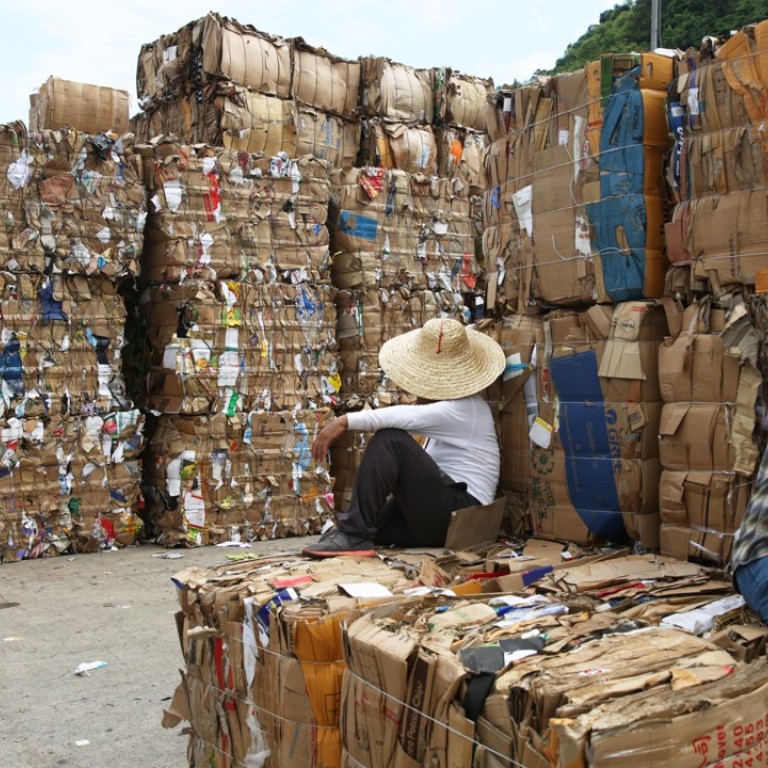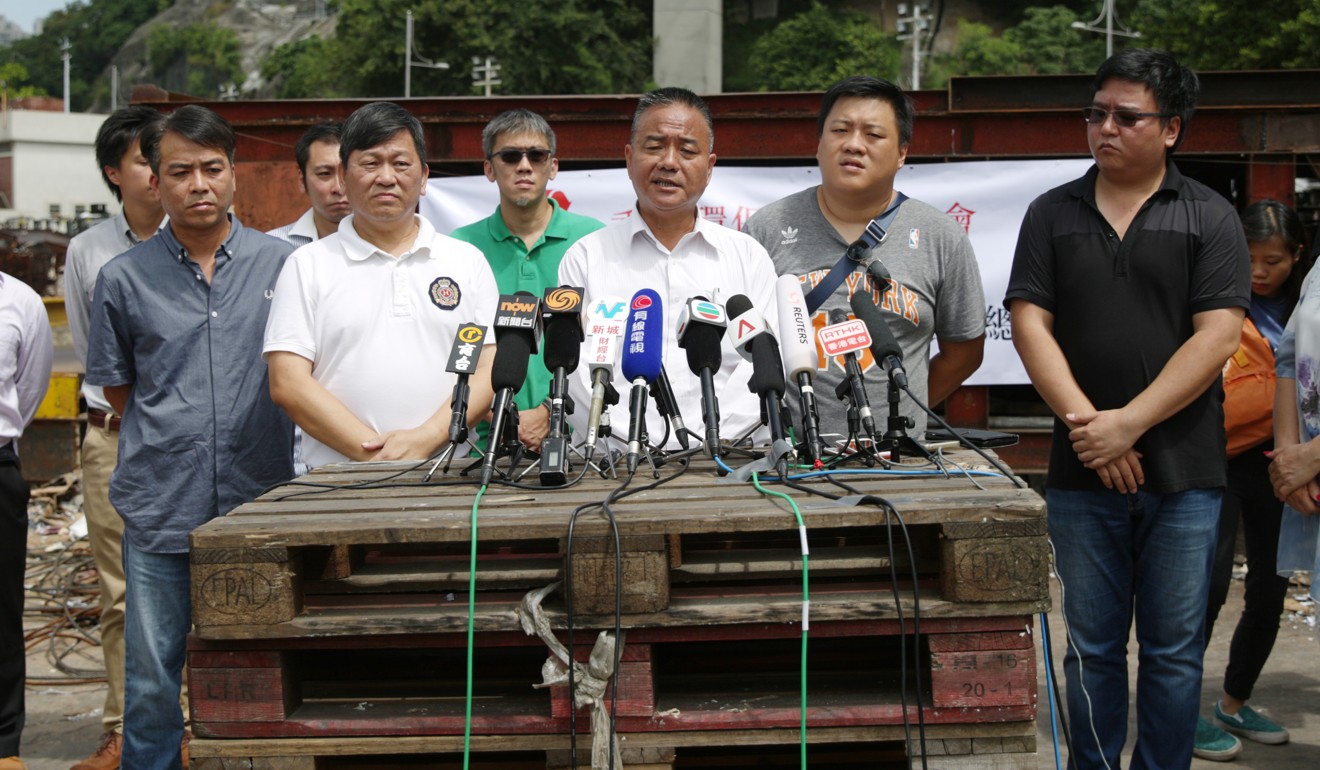
Hong Kong waste paper firms go on strike as new mainland rules threaten their survival
Week-long industrial action meant as ‘wake-up’ call to prompt government to negotiate with authorities across border over import restrictions
Hong Kong’s waste paper exporters warned of a wave of business closures in the next few months as they began a week-long strike on Friday over import restrictions in mainland China that have crippled their work.
Complaining that they were still waiting for their mainland buyers to get import permits, they urged the Hong Kong government to raise their concerns with authorities across the border.
That stark warning came as Environment Secretary Wong Kam-sing said the government’s contingency measures were enough to cope with a paper jam crisis, adding that officials had been talking to mainland authorities about the issue.
Jacky Lau Yiu-shing, director of the Recycle Materials and Re-production Business General Association, said: “We are extremely sorry about how this [industrial] action will affect the grass-roots collectors, but we promise that this will not last longer than a week.”
Lau said he hoped the strike would “be a wake-up call for the government to help us communicate with mainland authorities.”

Some 80,000 tonnes of waste cardboard, newspaper and office paper are collected in the city each month. Almost all of it is exported across the border because of the city’s lack of sorting and processing capacity and the mainland’s demand for raw materials.
Since last Friday, up to 50,000 tonnes of waste paper has piled up at three of the city’s docks, which can hold 110,000 tonnes between them. Storage areas at two out of 16 exporters were full to the brim by Friday.
The looming crisis stems from a national policy tweak in July, aiming to ban 24 types of polluting “foreign rubbish” imports by the end of the year.
About 1,000 recycling plants across the mainland failed to get a permit to import foreign waste, causing a logjam of stock in Hong Kong.
Lau said that only about a third of the 80,000 tonnes local firms ship to mainland China each month can be diverted to Southeast Asia. That leaves 50,000 tonnes with nowhere to go.
“If China is eventually unable to issue import permits, then we will be able to collect only what we can ship out, which will be only about 30,000 tonnes. It’s inevitable that some businesses will have to close down,” Lau said.
He said the industry faced HK$2.7 million per day in losses as firms are unable to offload 2,500 tonnes a day, at a cost of HK$1,100 per tonne.
The operator of a corrugated paper factory on the mainland said paper plants across the border had been feeling the heat.
James Tang Kwok-yau said the logjam in recycled paper imports had left his factory short of one of its essential ingredients, pushing up prices.
Wholesale prices for the best grades of cardboard had risen by more than 20 per cent to around 5,000 yuan per tonne in the last two weeks, with “no end in sight”, he said.
“Downstream processors are getting squeezed the hardest as they have mostly entered into one-year contracts with their customers and cannot pass on the higher costs yet,” he said.
With tightening restrictions on the mainland, he said he expected the paper industry to gradually migrate to parts of Southeast Asia, where processing requirements were more lax and labour costs lower.
To deal with the fallout, the Environmental Protection Department has reserved three hectares at Hong Kong’s first recycling-business park, EcoPark, in Tuen Mun, for free-of-charge temporary storage.
The Food and Environmental Hygiene Department pledged to step up its street cleaning and collection of recyclables, and to avoid the waste paper being sent to landfills.
“As for [mainland China’s] response, we should wait and see ... please give them some time,” Wong said.
At about 4pm on Friday, an owner of a recycling shop in Causeway Bay said he would only accept cardboard from people he regularly buys from. Lone collectors are one of the industry’s sources of waste paper.
But the association representing these recycling shops has dismissed the exporters’ claims and questioned whether all mainland importers were really refusing shipments.
Clara Li, who runs a local pharmacy, and regularly discards cardboard boxes in the street for collection, said she was not too worried. “I have left several batches of boxes, and they were all cleared,” she said.
Additional reporting by Ernest Kao


